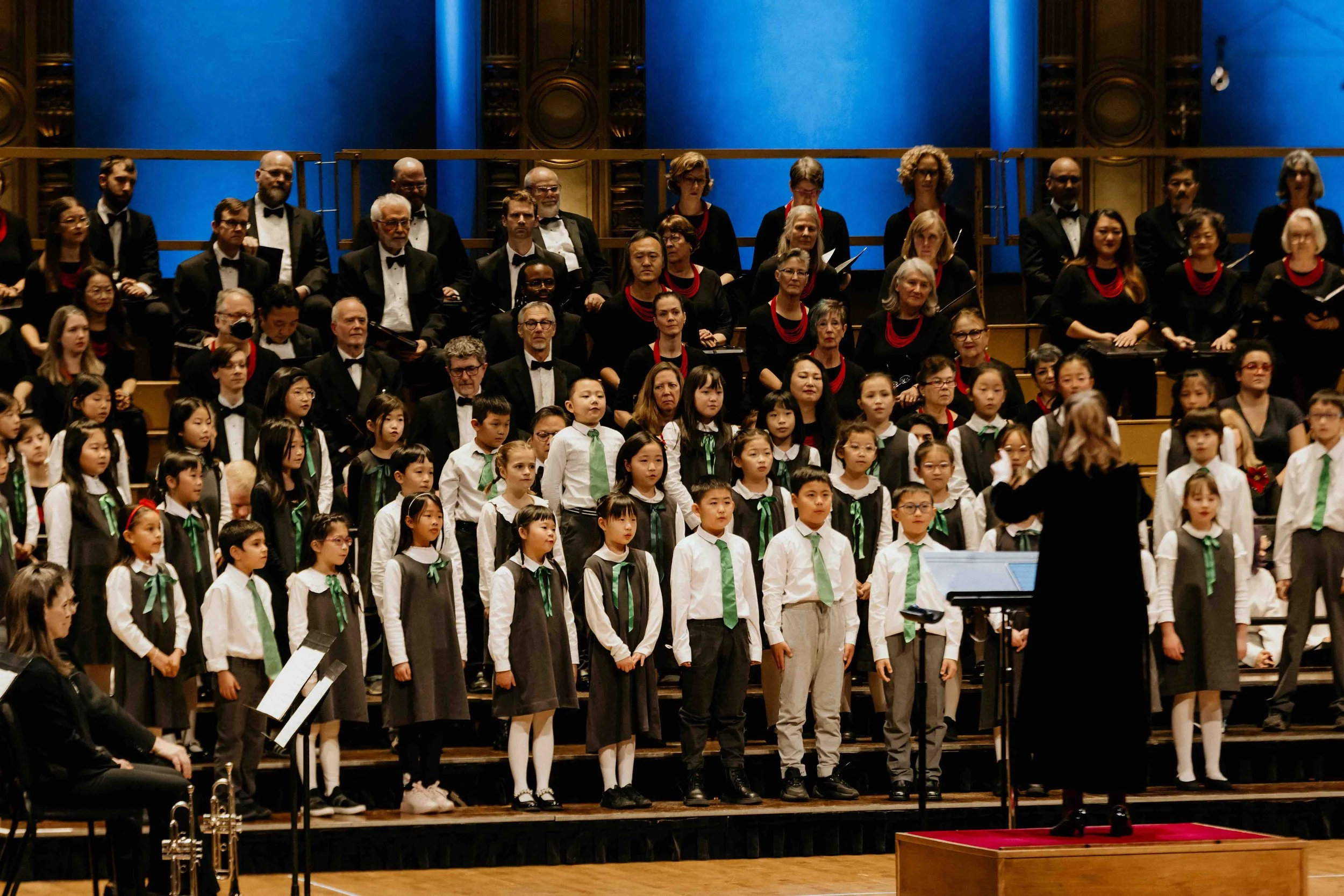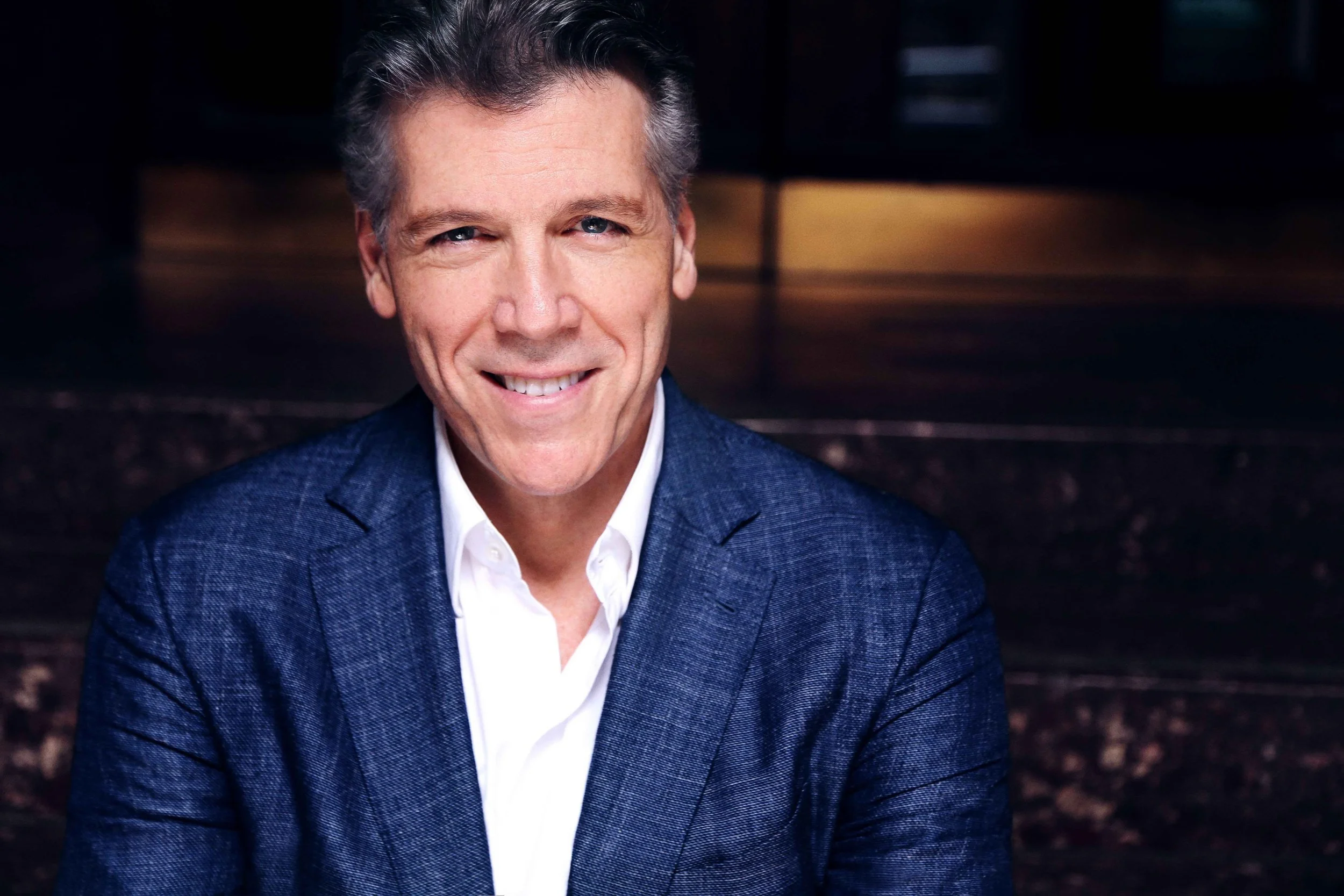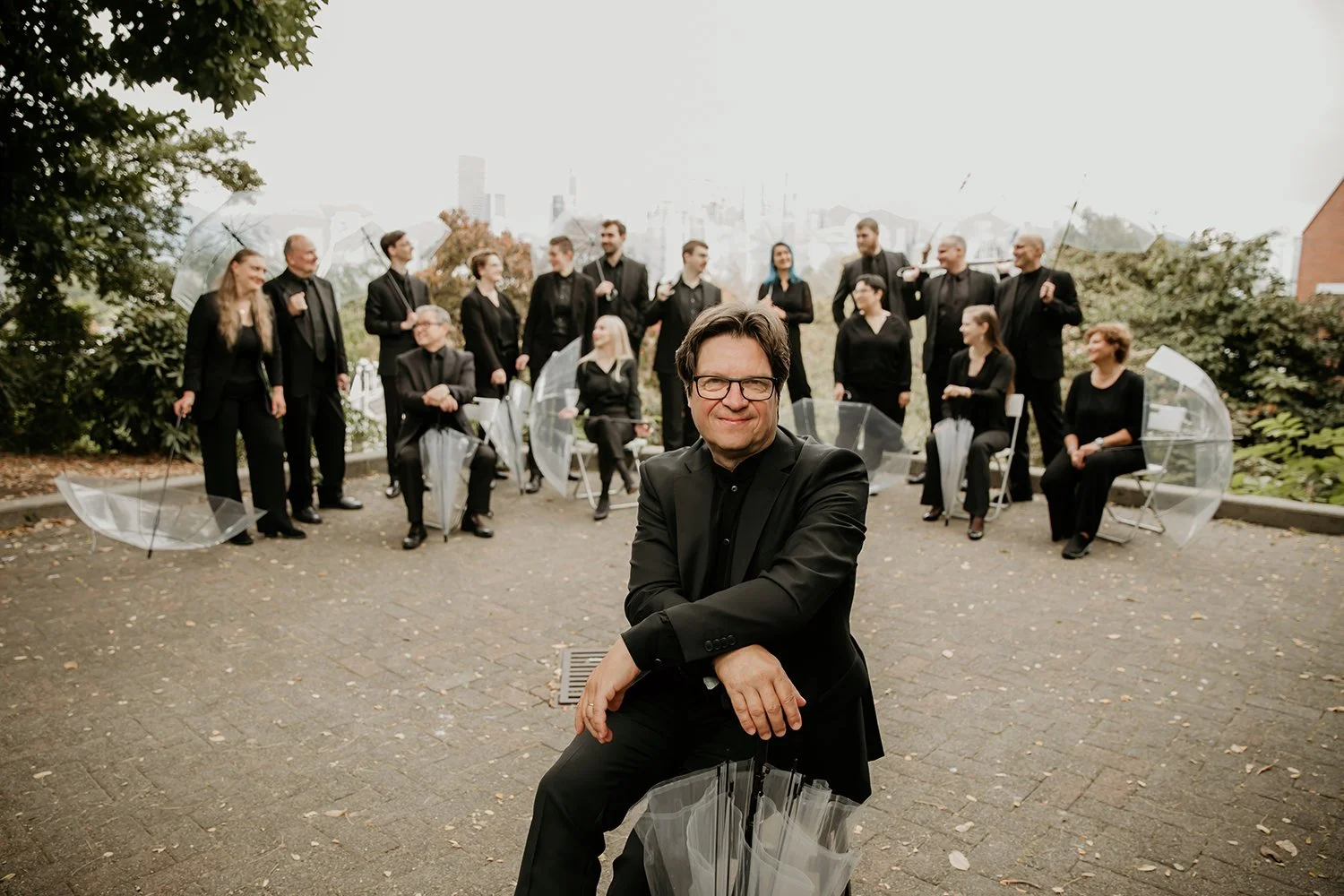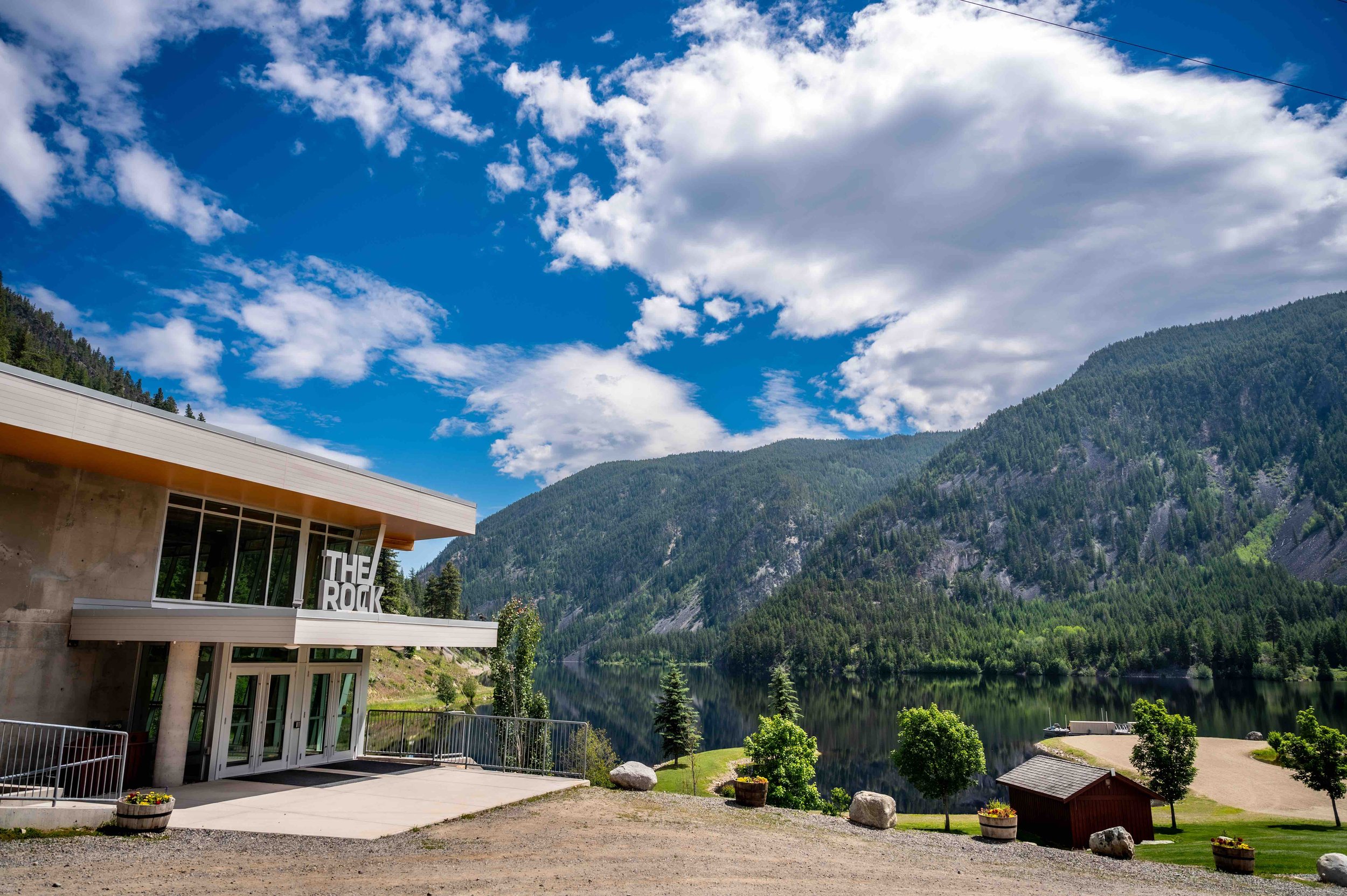Electronics and AI voice simulation meet acoustic instruments at Turning Point Ensemble's Interactive concert
Composer Mauricio Pauly is used to navigating a hybrid world of sound
Turning Point Ensemble’s Owen Underhill conducting TPE Interactive.
Mauricio Pauly working his machines. Photo by Dimitri Juric
TPE Interactive streams on June 11 at 7:30 pm (and will be available to view online for a year).
WHAT HAPPENS WHEN you bring together classical instruments like cellos, trumpets, and harps with interactive electronic sounds and AI voice simulations?
Audiences can find out at Turning Point Ensemble’s upcoming Interactive concert, which forges into the sonically adventurous territory of composer Mauricio Pauly’s new piece We en flor de chiflón. The streamed performance of electro-acoustic compositions by himself and composer David Eagle was recorded at the Chan Centre.
The hybrid work is bold and challenging new ground for the members of TPE, but the melding of instrumental and electronic worlds comes naturally to the Costa Rican-born composer, who is assistant professor at SFU’s School for the Contemporary Arts.
“It comes from my music-making history,” Pauly tells Stir. “Early on, I was making music in a band, where the boundary between instruments and electronics wasn’t discussed; it was part of the flow.
“When I was becoming a composer and went to school for that, I spent many many years in conservatories in the context of orchestras and chamber ensembles and so on, and I was always struck by how hard that boundary seems within that context...When I started to find my feet, recognizing my voice after education, that was when those things started falling apart: those imaginary boundaries.”
The more Pauly works with ensembles who use acoustic instruments, the more he has learned over the years to hand some agency over the technology to the musicians. In earlier experiments, he had found musicians would lose some of their expressivity if they felt he had complete control over manipulating and amplifying their sound. “Their expression was reduced to expressing more primary aspects of the score,” observes the composer, who helped found Britain’s electroacoustic experimental group Distractfold.
In the case of sextet he’s written for Turning Point Ensemble, that’s meant finding comfortable ways for harpist Janelle Nadeau, say, to operate operating her own sustain pedal, or trumpeter Marcus Goddard to loop and adjust his own sounds in real-time collaboration with Pauly’s live processing.
“So I can sit there and be a sixth member that is integrated in a chamber way and involved in the music,” says Pauly.
Mauricio Pauly (right) and his assistant Alexander Abahmed. Photo by Fleur Sweetman
For the new piece, Pauly’s own electronic sonic environment draws from diverse and fascinating sources.
One of the main ones comes from using AI technology that mimics the human voice. Inspired by Chilean-French cult-filmmaker and artist Alejandro Jodorowsky, and relating to his cross-disciplinary fluidity and what Pauly calls his “scrappy Latin American mode”, the composer decided to feed one of his more colourful interviews into the program. What came out finds its way into We en flor de chiflón. Not that you’ll necessarily be able to recognize or understand it.
“The machine is trained in generic, American, US English, so it can't deal with Alejandro’s Latin American accent,” relates Pauly. “It’s crazy; it’s falsified in the craziest ways! So I ended up with all this audio of the computer dealing with this problem—not knowing what problem it is dealing with, of course—which is beautifully musical. Sometimes it has the character of a man's voice but most of the time it is nonsensical.
“It turns on those nerves in you that put you in a position to understand language that never actually comes out,” he continues. “It puts you at the ready: you’re ready to hear and it doesn't actually come, and that’s a very strange position….And the musicality of those phrases formed a lot of the orchestrations—the pacing and the colouring of the piece, and then it’s also included in the first half of the piece.”
Pauly weaves that unusual source material into We en flor de chiflón, which also draws on the sampling of vaporwave—even while trying not to, paradoxically.
The composer explains that he came to the electro genre, known for its hypnotically decelerated sampling, a bit late, and that it made him feel vaguely nostalgic for the music of his past—despite its newness. After all, as he puts it in his program notes, the genre was essentially “a generation younger than mine vicariously nostalgic for my generation’s nostalgias.”
“I also have an odd relationship with nostalgia in that I’m conscious of it and I find it muddles my thinking in unproductive ways,” he explains. “I always have to truncate that attempt and start anew. So I think nostalgia is part of my process but it is something I try to negate.”
That kind of interweaving of impulses, artistic influence, and sampling gives you just a cursory idea of the kind of musical world Pauly can conjure alongside instrumentalists. It’s part of a larger body of work in which he collaborates with visual and performing artists; this pandemic year, he’s also been working with Theatre Replacement on a major “strange, crazy, beautiful” piece you can watch for in the new year.
In the meantime, you can bring your own associations to We en flor de chiflón, even if you can’t fully crack the meaning of its strange new “language”. For an idea of the playfulness with which Pauly breaks down the imaginary boundaries he talks about, look no further than the somewhat nonsensical title, a mix of English and Spanish, and one very strange word that’s peculiar to Costa Rica. “Chiflon”, Pauly says, is a word from his grandmother’s generation; it refers to a cold breeze, but the kind that can make you sick if you don’t grab a sweater.
“It’s always used as a caution, like, Watch out for the chiflon!’” he says, and then adds with a laugh: “It’s a bit of that grandma paranoia… So, yeah, there’s maybe a bit of ominousness there.”
















